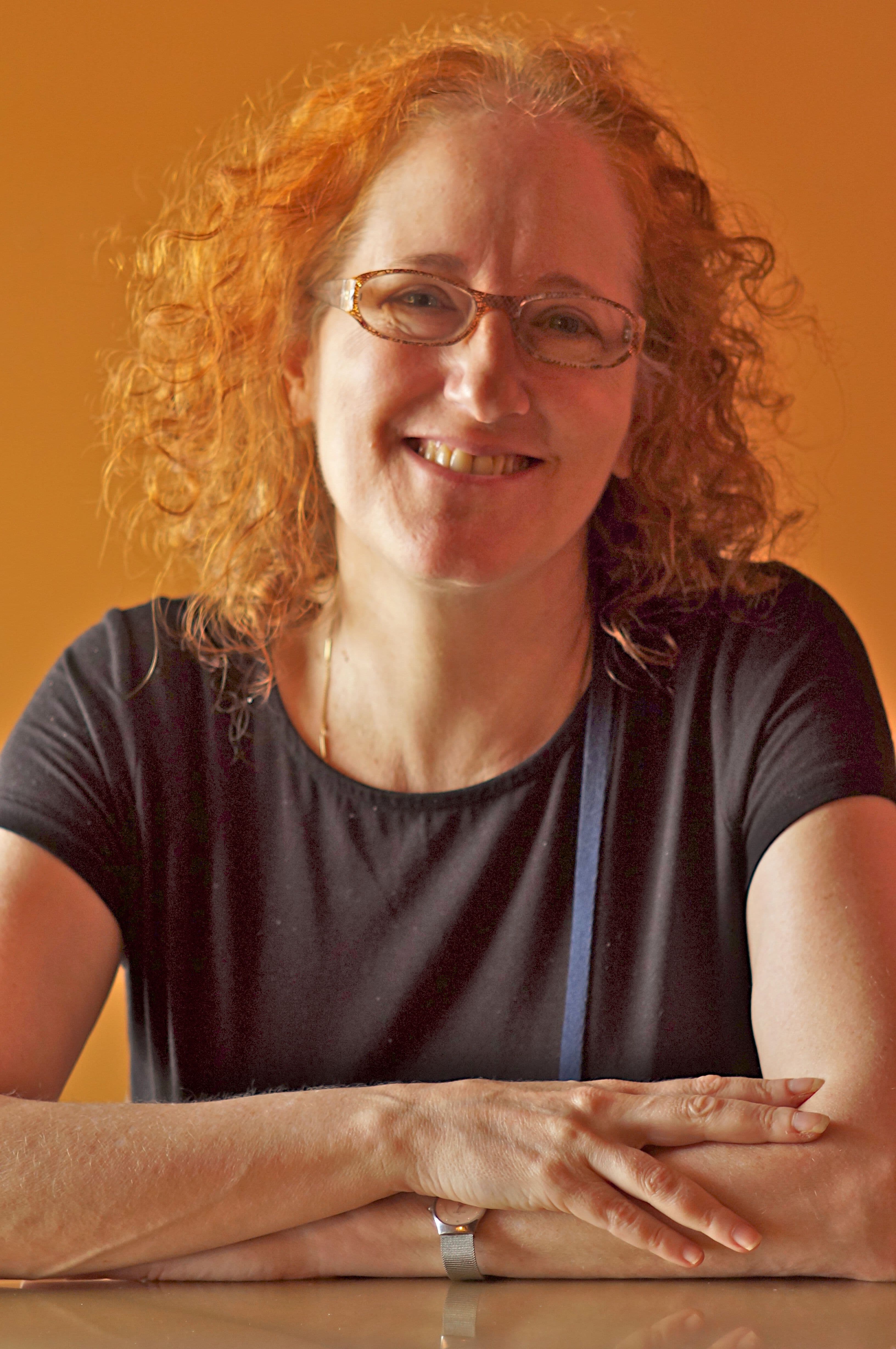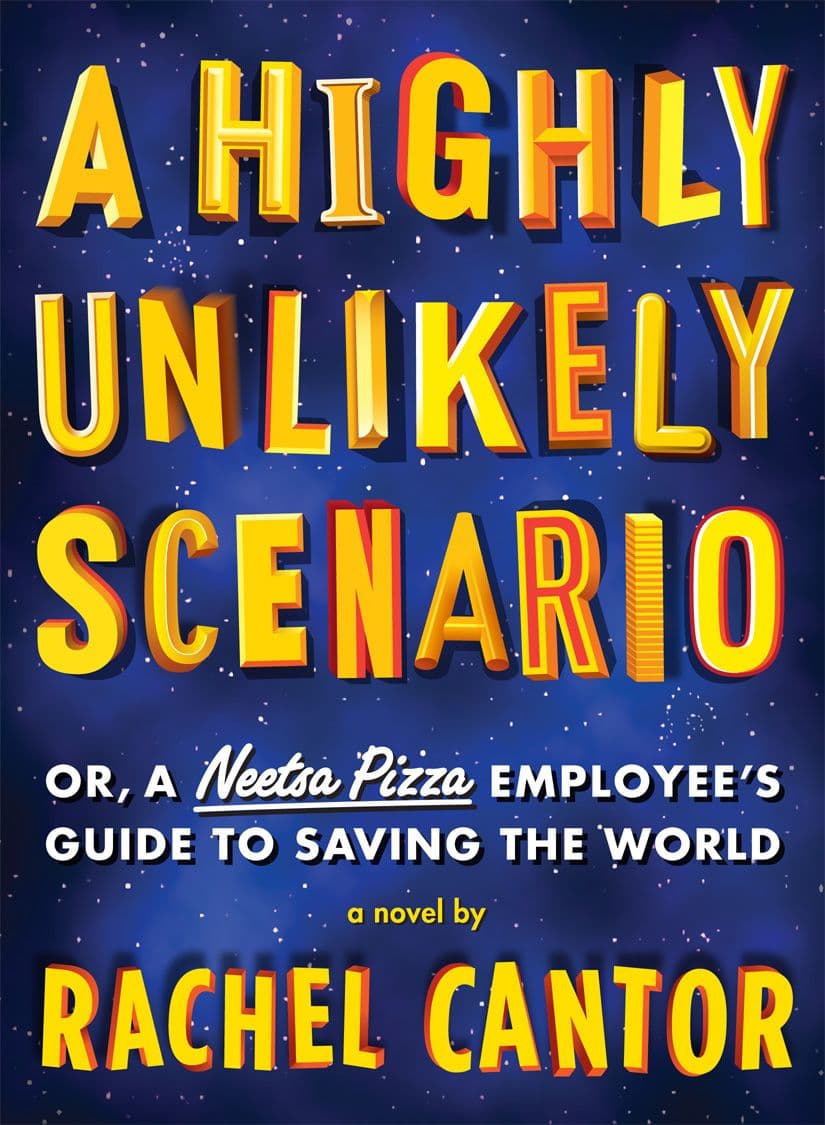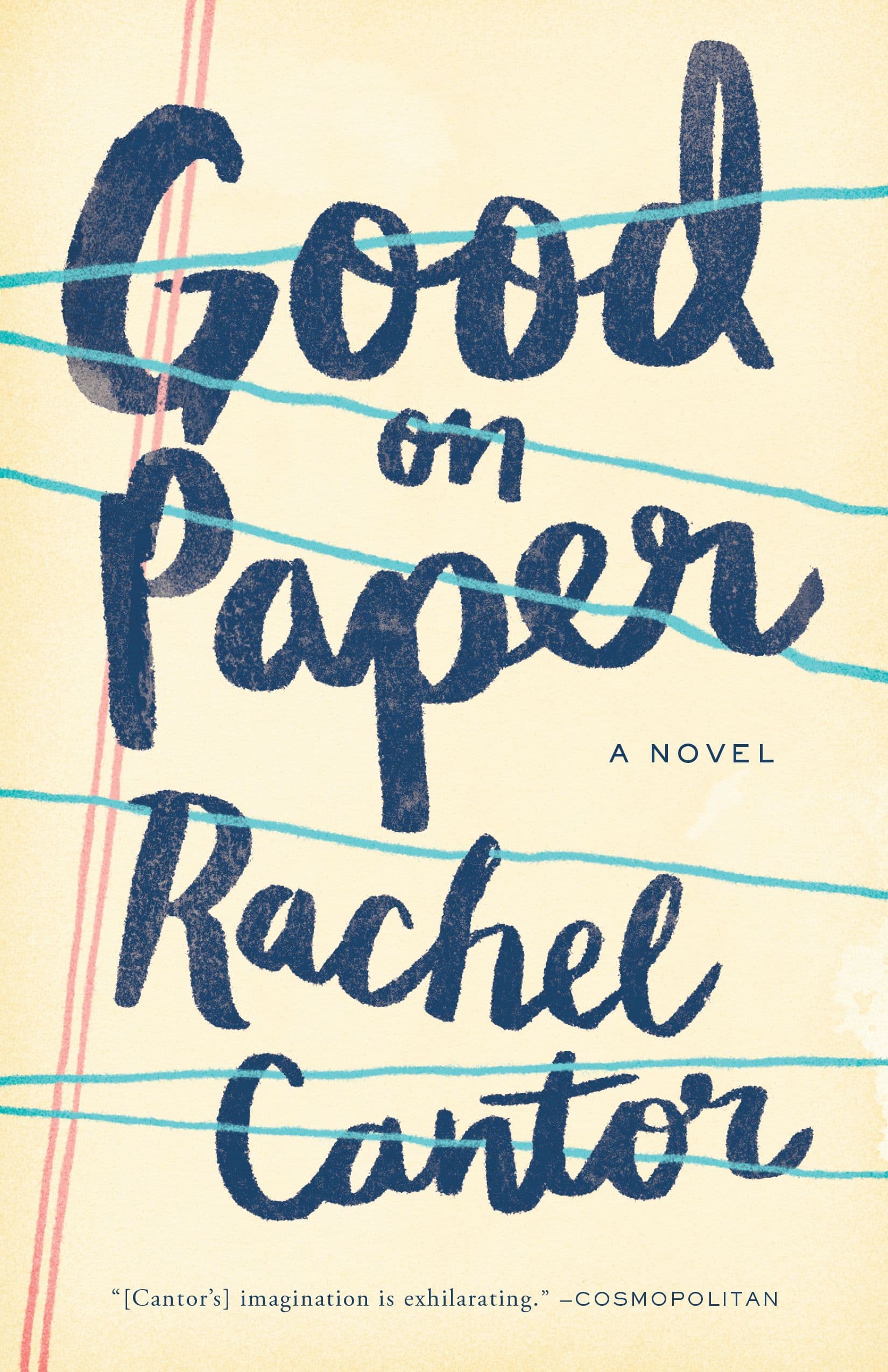Community Gateway
Back to GatewayAUTHOR

My experience was not the typical experience (to the extent that there is a typical experience for St. Stephen’s students!). After my parents divorced, my mother decided to take my sister and me abroad. She picked Italy because she had taken some Italian in college. She thought we’d go for one year, but one year turned into six years. I was a ten-year-old in Hartford, Connecticut, who didn’t speak Italian, and suddenly I found myself in Rome. I didn’t even eat American food, and somehow I would have to learn how to eat spaghetti (among other things)! I was at AOSR for four years, then went to St. Stephen’s for ninth and tenth grades.
The school was very small in the mid-1970s--fewer than 100 students. It was a very intimate experience! We had small classes and very wonderful teachers. St. Stephen’s took the city of Rome so seriously and took advantage of it in every way.
In terms of specific memories, I start with the treasure hunt, which was the quintessential St. Stephen’s experience; all those places--even after four years in Rome-- were new and exciting to me. [Then there was] the travel we were able to do: I went to Tunisia at the age of fourteen, then the next year we went to Southern France, to Provence, and other thrilling places like Verona, Assisi, and Venice. Those trips were exciting not just because of the chance to hang out with pals but because of the opportunity to see new places. It was extraordinary.
I also took amazing classes that engaged the city, like Peter Rockwell’s History of Art class, and also Roman Art and Architecture, and Latin Authors in Translation. Our teachers were often overqualified; they just really wanted to be in Rome and they enjoyed teaching. Richard Trythall was an accomplished composer who taught chorus! I am very grateful for that. I can still remember Mr. Scudder reading to us from the original Latin--I was too young to really understand why he did so, but the fact that it meant so much to him made me think!
I also remember the courtyard! We had an old dog, a German shepherd, that used to hang out with us, and there was a bar in the courtyard where people would drink coffee before class. The kids who drank coffee seemed so old and sophisticated to me. It was all so civilized!

I was only at St. Stephen’s for two years. After that, we moved back to the States, to Brookline, Massachusetts, which was not a bad place to be after Rome. I went to an alternative school within the public school system, and then I went to Yale, where I studied philosophy and also literature. I took many art history courses, too, and classes in religious studies because, well, it’s all about Rome, isn’t it? Rome affected how I think about things; it influenced me.
Both of my published novels are tied to Rome. The heroes of A Highly Unlikely Scenario must travel back to 1280 Rome to rescue a small boy from a possibly crazy mystic and also save the world. The Theater of Marcellus, the Portico of Octavius, and other places I visited through St. Stephen’s classes all appear in the book.
My second novel, Good on Paper, is set in New York, but the narrator lived in Rome as a young person; she may even have gone to a school rather like St. Stephen’s, and now she translates from the Italian. I’ve also set several published short stories in Italy. There’s even a short story where the narrator of Good on Paper is taking a class that might resemble the art history class I took at St. Stephen’s. I think that what becomes creatively important to us is imprinted on us in our teen and young adult years. St. Stephen’s turned me into somebody who loved Italy, who loved art and history.
Currently, I am writing less about Europe and more about New York City--specifically, the Lower East Side, because of the richness and diversity of its history and how quickly it’s changing. I’ve been writing young adult and middle-grade books that take place in that setting, at different times and using different genres.

I never became all that good at Italian. I was sufficiently good to take an advanced Italian class at St. Stephen’s but not to do very well in it. The translator narrator of Good on Paper is far more skilled than I will ever be! Generally, I find all language interesting, which isn’t uncommon for a writer who spends her time thinking about words, sentences, and paragraphs.
In A Highly Unlikely Scenario, the main character is bombarded with words he doesn’t understand--for example, when he travels back to medieval Rome. There’s a lack of transparency to the language he encounters there that understandably mystifies him. I guess that’s the experience of anyone who ends up in a country as unprepared as I was at age ten, who finds themselves in linguistically opaque circumstances, on the other side of a language. It becomes our job then, step by step, to bridge those barriers. In both A Highly Unlikely Scenario and Good on Paper those linguistic gulfs become a metaphor for how we live: we have to find ways to reach each other, even if we don’t speak the same language, and often even if we do.
Mysterious words are so much fun. I remember when I was a child, reading about Turkish delight in The Chronicles of Narnia. It never occurred to me that I could look up what that meant. I was just glad to encounter such magical words! Sometimes words take on weight, and delight--like poetry!--when you don’t know exactly what they mean.
This is a complicated question. I consider spirituality to be a strong dimension of what I write, but it’s not as if I write stories about people who are on religious quests or have a religious vocation; in fact, I’m much more likely to write about a person who’s striving to find their place in the world than I am to write about someone who has any kind of certainty, religious or otherwise.
In A Highly Unlikely Scenario, the main character lives in a world in which various ideologies vie for followers through proprietary food chains. He is a Listener (a fancy term for “complaints guy”) for a Pythagorean pizza chain, and he believes in the tenets of Pythagoreanism. He was chosen for this job through an advanced process that recognized his off-the-charts receptivity and ability to open up to the pain of the world, and that’s a spiritual concept. His ability to receive people’s hurt (i.e., listen to their complaints) is evidence of spiritual capacity, no less than his ability to receive messages from dead thirteen-century mystics. When he sits in his pretzel position, he receives wisdom. And while he’s saving the world, he’s also learning how to be in the world, with people; he’s learning how to love. These are spiritual questions for me: how do we live a good life? How do we love?
This question also arises in Good on Paper in somewhat different form: how do we love after we’ve been hurt? How do we get beyond our hurt to forgive? My tradition, Judaism, has a lot to say on these matters, and they inform what I think. For example, in Judaism, [we speak about] “teshuva,” which is returning to yourself; some call it “repentance,” but it literally means to turn back to yourself, your true self. The narrator of Good on Paper is an atheist, but she’s very concerned with these questions.
Writing is the best. I’ve wanted to be a writer since I was eight years old; it’s all I’ve ever wanted. How do you describe something that, when you do it, you feel like you’re aligned with your talents, your purpose, your values, how you want to live your life? That’s how I feel when I write.
I love playing with my imagination, with humor, with emotion, and finding a way to get all of that plus all the weird ideas I have in my head into a story. In A Highly Unlikely Scenario, Marco Polo, Roger Bacon, the unreadable Voynich manuscript, Jewish mystics, and a lot of other ideas come together. In Good on Paper, I include ideas about translation, Dante, rhetoric, and poetry … When you put it all together, it’s just great fun, in addition to being moving, cathartic, and a lot of other things, depending on the book. Drafting a novel is exhilerating, like skiing downhill without brakes--unless you fall, which can happen! Then once it’s drafted, you turn on your analytical brain and start shaping and understanding what the book is about; through revision, you have an opportunity to make your story something fun, interesting, moving, and lovely for your reader.
I also love the autonomy of being a writer; I can be anywhere in the world writing. I love that independence, and I love the writing community. Writing changed my life. It’s so hard, but it’s great in so many ways, and it suits me well.
All of my publications. I started writing relatively late in life, in my thirties. I went to grad school in my late thirties and started publishing in my forties. Good on Paper took more than ten years to write, then it took a long time to find the right publisher. Seeing those books in print feels like my greatest professional accomplishment, and both of the books have been well received by critics and readers. To have the appreciation of one’s peers and one’s readers is incredibly gratifying.
It’s a big act of faith when you sit down to write a novel. I didn’t intend to write a novel when I started Good on Paper. It was meant to be a short story, and it just kept growing. It wouldn’t have been anything I considered myself ready to write, but it chose me … I had no choice!
It has not been a straight path in any way. I may have wanted to be a writer since the age of eight, but that doesn’t mean that I became a writer when I had the opportunity; I didn’t. I didn’t know what I wanted to do after college. In the back of my mind, I still thought that I would love to write. But I also felt if I couldn’t be James Joyce, if I wasn’t an actual genius, why would I bother?
Now I know that’s silly. Probably I just lacked confidence, or didn’t have a story I needed to tell. I felt I needed to do good work in the world, and I didn’t yet make the connection between doing good work and being a writer. So I traveled a while and got a degree in international development. But it turns out my greatest skill was not in motivating villagers to dig wells; my greatest skill was writing, so I started writing for international health agencies in D.C. It wasn’t until I was in my mid-thirties that I looked at what I was doing and thought, is this what I want to do for the rest of my life? Is this it? Is this where I’m going to grow? Is this where I’ll find my satisfaction? The answer was, I could find some satisfaction here, but it’s not what I want from my life. So I quit my full-time job and went to the ocean, very romantically, to write. I took what I thought was a year off, and it turned out to be a whole new life. I got a second master’s degree, in fiction writing, in my late thirties, and I had my first short story publication at age 39. I started attending artist residencies, and getting scholarships to go to conferences, and making my way as a fiction writer.
I supported myself by continuing my former work as a writer/editor with international health agencies, but now as a part-time consultant so I could have time to write fiction. It turns out that being a consultant suited me, my need for independence, my lack of love for the 9-5 life. I lived frugally so I could write as much as possible, and I wrote lots of stories, then published the novels. It was a very winding path, but I wouldn’t trade any of it. You make lots of turns in life if you remain open to new possibilities and to questioning where you are at certain junctures, and you can certainly take wrong turns or the long way to get to where you’re meant to be, but all that life experience can be useful. I view it as useful.
I know a lot of really talented writers who gave up. Maybe they were afraid of rejection, or they experienced rejection, and didn’t like it, or maybe they just didn’t want to put in the work, but they gave up. Persistence is a huge part of success. Persistence may be a skill you acquire over time; certainly, it was not something I had initially!
Of course, some get their perfect job right out of school, or they write a best-selling novel at age twenty-five--this can happen. But for most people, it doesn’t work that way, so we need that persistence. Call it grit, call it resilience--it’s the ability and willingness to put in the work, to not expect something to come easily. To expect at least some failure, to know you’re going to make mistakes.
Putting yourself out there is also important. You can’t be passive and wait for things to come to you; you have to take chances. Even if you’re afraid of failure or rejection, you have to learn how to manage that so you can keep at it, so you can keep trying. It all sounds so obvious, but it’s not obvious. You may find yourself in a job where it’s easy to continue what you’re doing. This was the case with me. I had a respectable life, but a part of me was aching: I was not doing what I was meant to do. So you have to take chances and put yourself out there; you can’t wait for things to change.
To learn more about Rachel and her writing, visit her website.
Photo credit Bennett Beckenstein